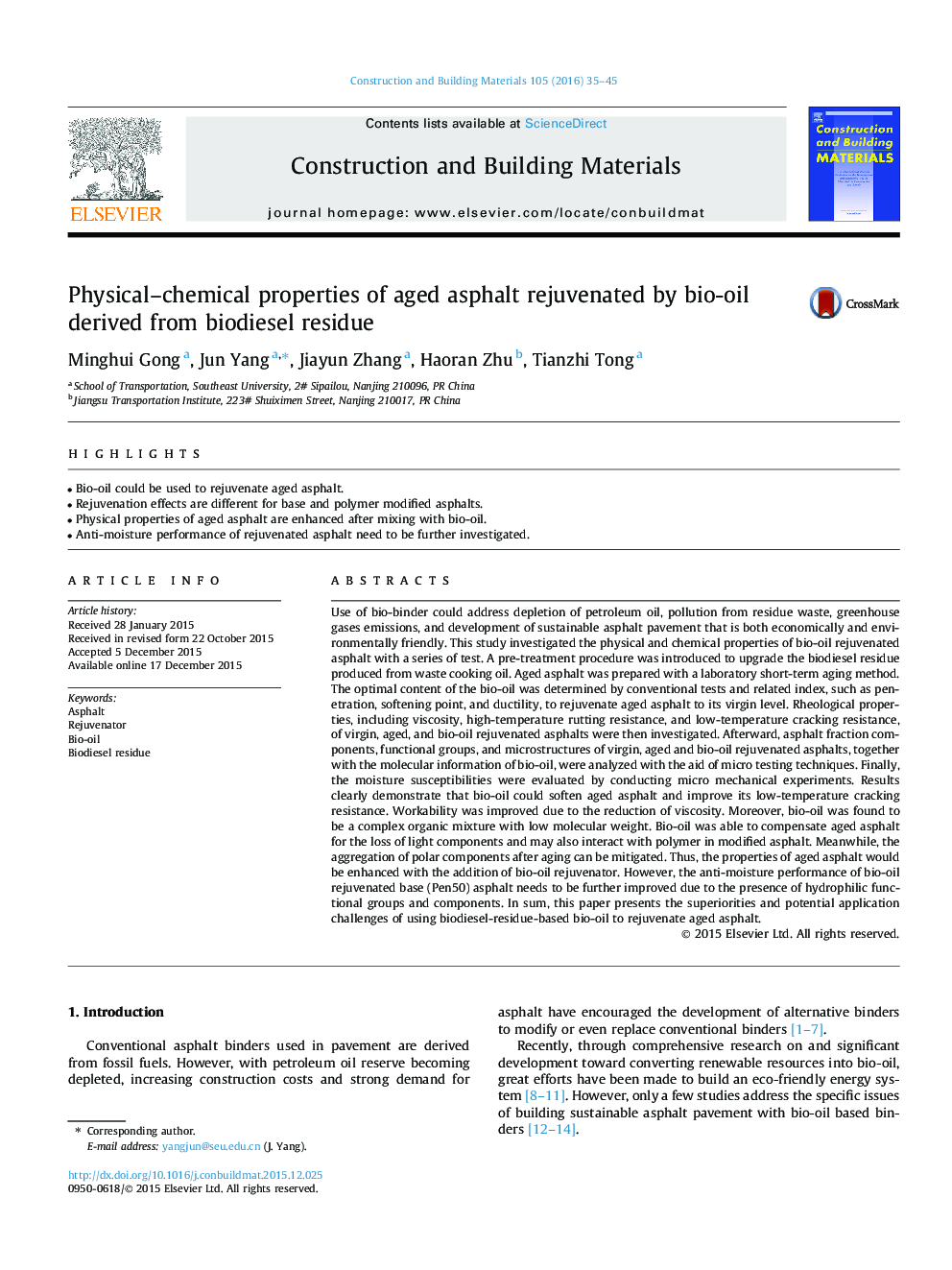| کد مقاله | کد نشریه | سال انتشار | مقاله انگلیسی | نسخه تمام متن |
|---|---|---|---|---|
| 6719376 | 503544 | 2016 | 11 صفحه PDF | دانلود رایگان |
عنوان انگلیسی مقاله ISI
Physical-chemical properties of aged asphalt rejuvenated by bio-oil derived from biodiesel residue
ترجمه فارسی عنوان
خواص فیزیکی شیمیایی آسفالت سالمی که از روغن زیتون حاصل از بقایای بیودیزل جوانه زده شده است
دانلود مقاله + سفارش ترجمه
دانلود مقاله ISI انگلیسی
رایگان برای ایرانیان
کلمات کلیدی
آسفالت، جوان کننده روغن زیتون، بیودیزل باقی مانده،
موضوعات مرتبط
مهندسی و علوم پایه
سایر رشته های مهندسی
مهندسی عمران و سازه
چکیده انگلیسی
Use of bio-binder could address depletion of petroleum oil, pollution from residue waste, greenhouse gases emissions, and development of sustainable asphalt pavement that is both economically and environmentally friendly. This study investigated the physical and chemical properties of bio-oil rejuvenated asphalt with a series of test. A pre-treatment procedure was introduced to upgrade the biodiesel residue produced from waste cooking oil. Aged asphalt was prepared with a laboratory short-term aging method. The optimal content of the bio-oil was determined by conventional tests and related index, such as penetration, softening point, and ductility, to rejuvenate aged asphalt to its virgin level. Rheological properties, including viscosity, high-temperature rutting resistance, and low-temperature cracking resistance, of virgin, aged, and bio-oil rejuvenated asphalts were then investigated. Afterward, asphalt fraction components, functional groups, and microstructures of virgin, aged and bio-oil rejuvenated asphalts, together with the molecular information of bio-oil, were analyzed with the aid of micro testing techniques. Finally, the moisture susceptibilities were evaluated by conducting micro mechanical experiments. Results clearly demonstrate that bio-oil could soften aged asphalt and improve its low-temperature cracking resistance. Workability was improved due to the reduction of viscosity. Moreover, bio-oil was found to be a complex organic mixture with low molecular weight. Bio-oil was able to compensate aged asphalt for the loss of light components and may also interact with polymer in modified asphalt. Meanwhile, the aggregation of polar components after aging can be mitigated. Thus, the properties of aged asphalt would be enhanced with the addition of bio-oil rejuvenator. However, the anti-moisture performance of bio-oil rejuvenated base (Pen50) asphalt needs to be further improved due to the presence of hydrophilic functional groups and components. In sum, this paper presents the superiorities and potential application challenges of using biodiesel-residue-based bio-oil to rejuvenate aged asphalt.
ناشر
Database: Elsevier - ScienceDirect (ساینس دایرکت)
Journal: Construction and Building Materials - Volume 105, 15 February 2016, Pages 35-45
Journal: Construction and Building Materials - Volume 105, 15 February 2016, Pages 35-45
نویسندگان
Minghui Gong, Jun Yang, Jiayun Zhang, Haoran Zhu, Tianzhi Tong,
